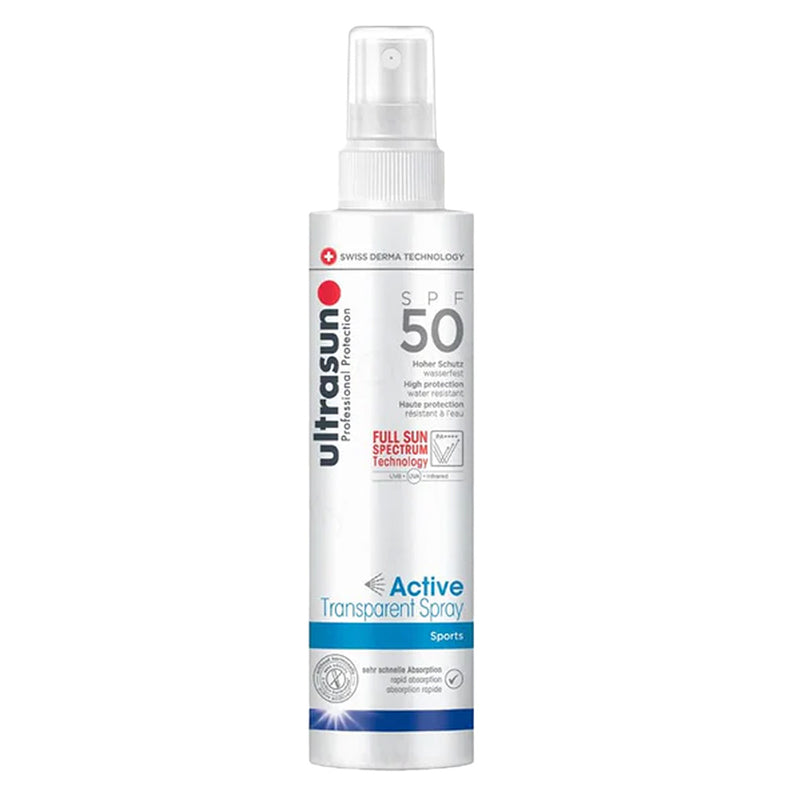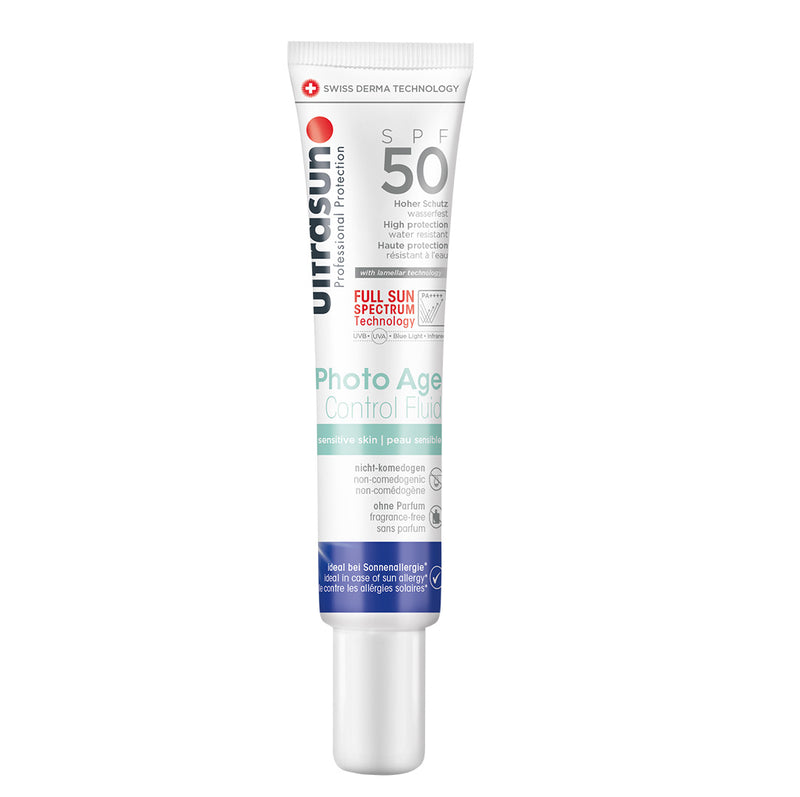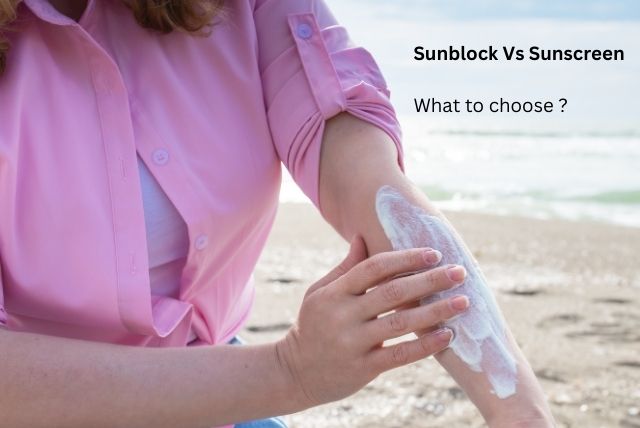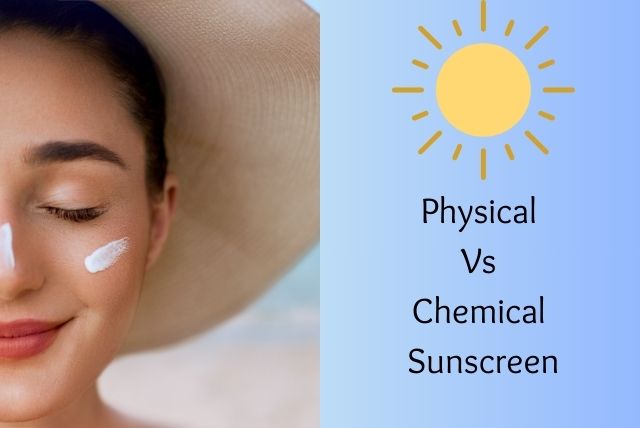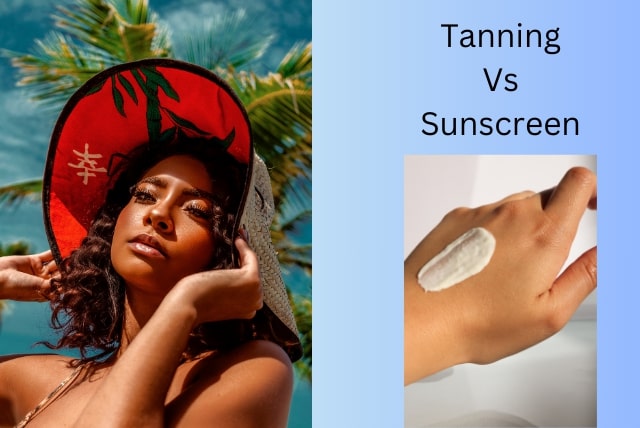When we want our skin to have a nice sun-kissed look, there are some confusing things about skincare. One confusing thing is whether sunscreen, which is supposed to protect our skin from the sun, can actually make our skin darker. This question has made a lot of people wonder if their sunscreen is doing the opposite of what they want. Let's talk about this and find out if sunscreen really makes our skin darker.

Debunking the Sunscreen Myth about Skin Darkening
Before we get into all the details, let's make something clear: Sunscreen won't make your skin darker when using it correctly. Actually, sunscreen’s main job is to prevent tanning and protect your skin from the damaging effects of the sun. However, there are nuances and factors that can contribute to the misconception that sunscreen causes darkening.
Relationship between UV Radiation and Skin Darkening & How Sunscreen Works
When our skin is exposed to UV radiation, it triggers the production of melanin, the pigment responsible for skin, hair, and eye color. This increase in melanin production leads to skin darkening or tanning, as melanin acts as the body's natural defense against the harmful effects of UV rays.
Sunscreen, in essence, acts as a barrier between your skin and UV radiation. It contains active ingredients that either absorb or reflect UV rays, preventing them from penetrating your skin. This protective shield significantly reduces the risk of sunburn, premature aging, and skin cancer without getting your skin dark.
Real Factors That May Cause the Darkening Effect On Your Skin
There are many reasons for skin darkening of course are not directly related to using sunscreen. These are as follows:
1. Inadequate Sunscreen Application
One of the common reasons behind the misconception is inadequate sunscreen application. When sunscreen is not applied evenly or in sufficient quantity, it may leave certain areas of the skin vulnerable to UV exposure, potentially leading to uneven tanning.
2. Incorrect Sunscreen Choice
Choosing the wrong type of sunscreen can also contribute to the darkening effect. Some sunscreens are not designed for prolonged sun exposure or may not provide adequate protection against specific UV wavelengths.
Use Ultrasun sunscreen which is the best sunscreen for sun protection because it has no controversial ingredients and uses advanced lamellar technology for better protection. It provides protection from UVA, UVB, IR and blue light while treating skin concerns.
3. Dust sticking to sunscreen
When sunscreen formulation is oily & sticky after you apply it on your face and body, dust might stick to it making you look darker. Make sure that the sunscreen that you choose is not very sticky.
4. UV-Induced Melanin Production
While sunscreen can effectively block a significant portion of UV rays, it's not foolproof. When you are outside for the full day, UV radiation may still penetrate the skin, triggering melanin production. This can lead to a slight darkening effect, especially if you have sensitive or reactive skin.
5. Sweat and Sunscreen Interaction
Sweating is a natural response to heat, and it can affect sunscreen efficacy. When you sweat, sunscreen may wear off or become diluted, reducing its protective capabilities. This can potentially expose your skin to UV-induced darkening.
Sunscreen Tips for Preventing Darkening from Sun
1. Proper Application Technique
To ensure even coverage, apply sunscreen generously to all exposed areas of your skin. Don't forget commonly overlooked spots like the ears, neck, and the tops of your feet.
2. Reapplication Importance
Normal sunscreens require reapplication every 2 hours but Ultrasun has added photostable filters in its sunscreens so they provide 7 + hr protection. More frequently application is required if you're swimming or sweating heavily.
3. Sweat-Resistant Sunscreens
Consider using sweat-resistant or water-resistant sunscreens if you'll be engaging in water-based activities. These formulas are designed to adhere better to the skin, even when you perspire.
4. Seeking Shade
Whenever possible, seek shade or wear protective clothing to minimize direct sun exposure. This reduces the risk of UV-induced darkening, especially during peak sunlight hours.
Common Misconceptions & Myths about Sunscreen and its Relation with Skin Darkening
Below are the misconceptions and myths about sunscreen and skin darkening which generally people search for and want the perfect answer.
Myth 1: Using SPF 50 Sunscreen Makes Skin Dark
There's a common misconception that using sunscreen with a high SPF, such as SPF 50, can lead to darker skin. However, this is not accurate. SPF 50 sunscreen provides robust protection against UVB rays, reducing the risk of sunburn and potential darkening.
Myth 2: Dark Skin Doesn't Need Sunscreen
All skin types, including dark skin, are susceptible to the harmful effects of UV radiation. While individuals with darker skin naturally have more melanin, which provides some built-in protection, it is not sufficient to prevent sunburn, skin damage, or skin cancer. People with dark skin can still experience sun damage and should use sunscreen for protection.
Myth 3: Sunscreen Is Only Needed on Sunny Days
UV radiation can penetrate clouds and cause skin damage even on cloudy or overcast days. Sunscreen should be used year-round, regardless of the weather, to protect your skin from UV radiation's harmful effects.
The Verdict on Sunscreen and Skin Darkening
While protecting your skin from the sun is essential, it's equally important to strike a balance. Sensible sun exposure and proper sunscreen use can help you enjoy the outdoors while minimizing the risk of skin darkening.
Sunscreen should be viewed as a preventive measure against sunburn, premature aging, and skin cancer. It is a powerful tool for maintaining healthy and radiant skin when used correctly.
Conclusion
In the ongoing debate surrounding sunscreen and skin darkening, the verdict is clear: sunscreen, when used properly, does not make you dark. Rather, it shields your skin from harmful UV radiation, reducing the risk of sun-related damage. By understanding sunscreen's role and applying it correctly, you can enjoy the sun's warmth without compromising your skin's health. So, embrace sunscreen as your ally in the pursuit of safe and sunny adventures.
Reference:
https://www.ncbi.nlm.nih.gov/pmc/articles/PMC3400707/
Read More
- How to Reduce Melanin in Skin: Detailed Guide
- Does sunscreen prevent tanning or not?
- Best Sunscreen For Dry Skin In India Recommended by Dermatologist
- Best Sunscreen for oily skin in India recommended by dermatologist
- Ingredients in Sunscreen to Avoid and Why
- Can Sunscreen Cause Acne? Answered By Dermatologist


